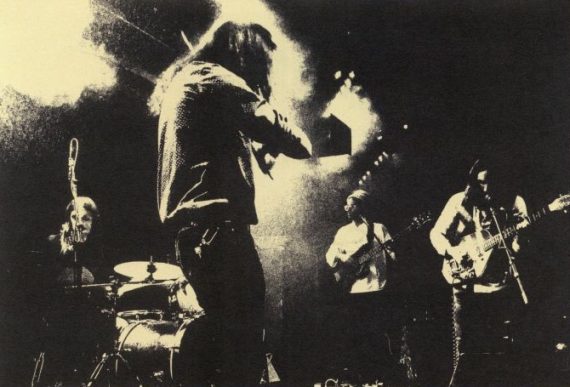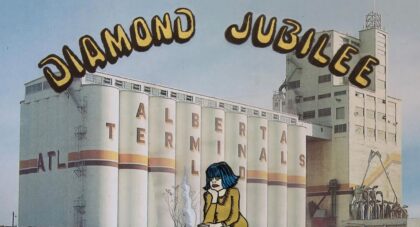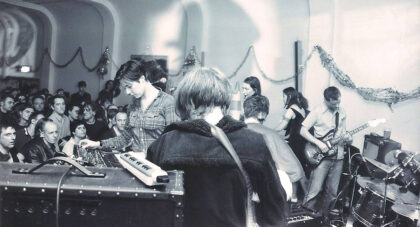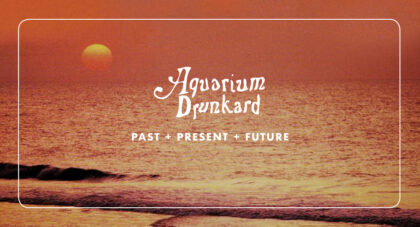If you're listening for musical borders in Borderlands, the latest from Tucson, Arizona-based psychedelic unit the Myrrors, good luck. In the record's collected extended jams and briefer numbers, whatever lines exist to separate kosmische, drone, folk, minimalism, and free jazz blur, bend and then vanish entirely. Yet however borderless the sound here may be, songwriter Nik Rayne and his crew have walls, and division, on the mind. The band's situated mere miles from the line that divides the United States and Mexico, and their meditation on how we keep out – and keep in – couldn't feel more timely, as the horrors of family seperations and abuse on our borders makes clear the real, violent effects of othering those who cross lines defined by powerful forces outside themselves. But timely records can sometimes feel timeless too, and Borderlands is that kind of record. Its meditative intensity, and "Call For Unity," suggests not only specific struggles in our time, but the struggles of people throughout history. "Tell me do you see it/the history in view/fooled us into thinking/it couldn't happen here," Rayne sings on the Amon Düül-referencing "The Blood That Runs the Border," the "here", gravely, could be anywhere.
I caught up with Rayne, whose music I've followed for more than a decade, to dig into the themes of the record, talk borders, and explore how record store culture has informed the band's sound. Borderlands is available everywhere today on Beyond Beyond is Beyond Records.
Aquarium Drunkard: Coming from Tucson, how has your own perception of the "border" between the US and Mexico changed over the years? Is the record an attempt to comment on the concept of borders more generally, in terms of the definitions we come up with to divide our art, politics, and beliefs in daily life?
Nik Rayne: The title and themes behind Borderlands emerged pretty naturally during the process of working on the album. Living in Tucson really puts you at the front line of a lot of what has been going on regarding the border patrol, federal immigration policies, and abuses, institutionalized racism, the complexities of heterogeneous regional histories, all that...to the point where these issues really become an inescapable part of daily life. I had been thinking about trying to steer the next record in a more conceptual direction anyways, and when "The Blood That Runs the Border" became one of the first tracks cut for the session it more or less guided me into the rest.
That being said, domestic border concerns were just the starting point; the album speaks towards border conflict on a global scale, as well as what happens in that dead grey zone in between the "walls" that people construct, whether those are physical, social, or psychological. Another real historical border that played a large part in the ideas behind the album is the Durand Line, the frontier-point between Afghanistan (where my father is from) and Pakistan drawn by the British empire for political reasons which separated the Pashtun homeland and has caused endless problems over the years...many of which might sound familiar to people from, say, the Tohono O'odham Nation in the Sonoran Desert, whose land and whose families were also divided by foreign interest between two countries in a seemingly perpetual state of conflict.
As the saying goes, "we didn't cross the border, the border crossed us."
Only the good shit. Aquarium Drunkard is powered by its patrons. Keep the servers humming and help us continue doing it by pledging your support.
To continue reading, become a member or log in.



